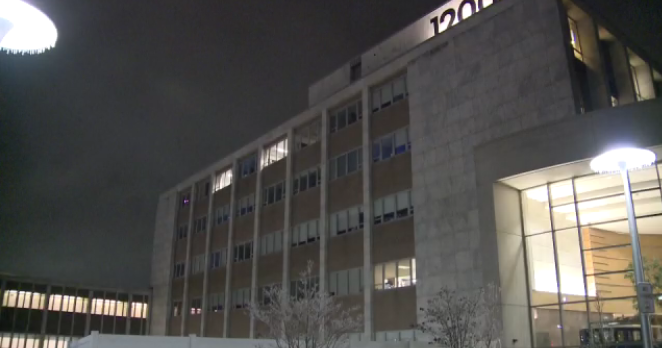Measles case confirmed in Camden County; officials working to trace source of infection
CAMDEN COUNTY, N.J. (CBS) -- A resident in Camden County, New Jersey has a confirmed case of measles, sparking contact tracing in an attempt to locate the source of the infection.
The resident exposed to measles visited these two health care facilities in Camden County on Jan. 5 and Jan. 8:
- Cooper University Healthcare Pediatrics at 6400 Main Street in Voorhees, between 11:35 a.m. and 2:32 p.m. on Jan. 5
- Jefferson South Jersey Stratford Hospital, 18 Laurel Road in Stratford, between 8 p.m. and 12:38 a.m. on Jan. 8
The resident also attended a day care, but the county says anyone who may have been exposed at that day care has been identified and contacted.
"Given the serious consequences of measles and the ease with which it can be spread, we will be engaged in a large investigative effort centered on locating and ensuring the immune status of those individuals who may have been in contact with this patient," Camden County Health Officer Paschal Nwako said in a news release. "In the meantime, we urge all residents to be vigilant of symptoms and to make sure they are up to date on their MMR vaccine because that is the best way we can protect ourselves and others from this disease."
The news of the case in Camden County comes as Philadelphia deals with a measles outbreak that spread to Montgomery County in Pennsylvania. The Camden County case may not be linked to the Philadelphia outbreak and more information will be needed from contact tracing to determine the source of the infection.
The New Jersey Department of Health is also involved in the investigation, Nwako said.
"Potentially exposed individuals, if infected, could develop symptoms as late as February 2, 2024," the county says.
Measles treatment, preventing disease caused by the virus
The measles, mumps and rubella (MMR) vaccine is very effective at preventing the disease, which is caused by a virus. Two doses of the MMR vaccine are 97% effective at preventing measles and one dose is about 93% effective, Camden County said.
"There is no specific treatment for measles. Caregiving should focus on relieving symptoms, making the person comfortable and preventing complications," according to the World Health Organization.
WHO recommends people with measles drink enough water and get dehydration treatments.
Adults and children should also take two vitamin A supplements 24 hours apart.
The COVID-19 pandemic set back vaccination efforts. And worldwide, there were a million more measles cases in 2022 compared to 2021, according to the CDC.
The U.S. has also seen a record number of kindergarten students entering school with an exemption from key vaccines, including the MMR vaccine. The CDC says 3.0% of kindergarteners have exemptions and that 2.8% were nonmedical exemptions.
Nonmedical exemptions accounted for virtually all of the increase in the national vaccine exemption rate for 2023 compared to pre-pandemic levels.
How is measles transmitted? What are the symptoms?
Measles is primarily spread through respiratory droplets from an infected person.
The virus can be airborne for up to two hours after someone with measles has been in the area. And anyone who has not already has measles or has not gotten the vaccine can become infected.
"Measles is one of the most infectious diseases that we know," Dr. Robert Danoff of Jefferson Health told CBS News Philadelphia.
The symptoms usually appear within one to two weeks after infection and include a fever, cough, runny nose, red water eyes or pinkeye, and a rash. The rash usually appears 3-5 days after symptoms start. It will look like flat red spots on the face at the hairline and can spread down to the neck, torso, and limbs.
Anyone with symptoms should contact their primary care doctor, get tested and report the exposure.
The Camden County Health Department can be reached at 856-549-0530.







